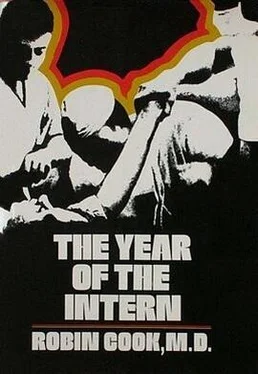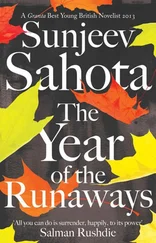The dinner was fine. Nancy’s parents and two brothers were also there, all of them lively talkers. After coffee, Nancy and I wandered out into the large, verdant yard and began an argument about Jomo Kenyatta and Tanzania. Why had Africa failed to produce more Kenyattas? She was emotional on the subject; it was good to see her color rise as she warmed to the argument, making her even prettier.
But then she started asking me questions about medicine. Because she was really interested, not just passing the time, like so many, I worked hard to make her understand, answering as well as I could. Inevitably, she asked why I had gone into medicine. To this question an intern develops many answers. Most of them are evasive half-truths. But with her I decided to try for the whole truth.
“Well, Nancy, I don’t think I’ll ever know exactly. In the beginning I suppose I had some vague notion about helping people by entering a noble profession. But now that I have a lot of medicine behind me, I think I was attracted just as much by the idea that being a doctor would give me a sort of power that other people don’t have — a power over people as well as disease. Few things mean more to Americans than good health, and those who have that to give, or claim to have it, are automatically authority figures in our society.”
“What do you mean by power and authority?”
“Just that, I suppose. It’s something like the power a medicine man holds in a primitive tribal society. He holds a high position only so far as he’s able to play on the fears of his fellow tribesmen and make them think he can control nature. If s a kind of legitimate hoax — legitimate because he performs a more or less useful function, and a hoax because he doesn’t really control anything but the tribal psychology. I think modern medicine is the lucky heir to that kind of psychological misconception. My patients don’t fall prostrate before lightning and thunder, but they’re sure as hell terrified by cancer and lots of other diseases they don’t understand. When they come to the hospital, they are looking for a medicine man in more ways than one. Before I went into medical training, I was like any guy in the street. I mean I believed in the power of medicine to do almost anything, and I wanted that power, wanted to be looked up to as the agent of that power.”
“But surely you mean the power to help people?” She still didn’t understand.
“Sure, I can help people. Not as much as I’d like, and nowhere near what they hope for, but some. But that kind of power is severely limited. Medicine is still fairly primitive. We just don’t know enough. It’s the other kind of power, the more abstract kind, that I’m talking about. That’s nearly unlimited. For example — I played a little football in high school, and one time a fellow broke his leg in practice. I was right next to him in the pileup, and I found myself there looking straight at him, wanting to do something, but totally helpless. When I thought about it later, what I remembered was the envy I felt toward the doctor. I know now that he didn’t do much except say a few soothing words, administer a painkiller, and haul the guy away. But to me, to all of us, he was a kind of god. The more I thought about it, the more I wanted a piece of that power.”
“But what about the idea you started with, of medicine as a noble profession, of just helping the boy with the broken leg. What happened to that?”
“It got all mixed up with the god idea. Anyway, I went on to college planning to become a doctor. Although a lot of new avenues opened up after that, no pressing alternative appeared. So I finally just drifted into medical school, not really having anything else in mind, wanting both kinds of power, and realizing I could have them in the medical profession, plus the social status and a reasonable income. Now mat I’ve more or less made it, all those abstract notions have fallen apart on me. I don’t have much social status, no money at all, the god-power thing seems utterly empty, and as for the power over disease itself — I hope to heaven I never have to undergo any surgery. I know too much about the limitations of medicine.”
I should have been sharp enough to notice the slight chill Nancy was giving off, but I didn’t. She had been waiting for the “ever since I was a little boy” story so dear to television and other fictionalized accounts of medicine. But she had made me reach down into myself, searching for answers, and the little boy wasn’t there.
“Then you don’t feel you have any special quality that made you go into medicine? No vocation, so to speak?” She was still looking for Ben Casey.
“No, this is definitely not like the priesthood for me. The closest I can come to medicine being a vocation is that I did well in both science and the humanities in college, and medicine is a logical combination of the two.”
“Well, you don’t sound like you have the same motivations as the doctors I know.” She was flaring up. And so was I.
“Just how many doctors do you know, Nancy? My whole world is made up of them. I live with them — interns, residents, attendings, the medical-school crowd — and I can tell you that, in general, what happened to me happened to them, and what I feel is pretty much what they feel, if you can get them to admit it.”
“Well, I think it stinks.”
“What stinks?”
“That our society has let you get this far. You’re the wrong person to train as a doctor, because you don’t care enough about helping other people.”
“I just told you that I want to help people, and I do, but the whole thing is more complicated than that. Hell, I’m just like everybody else. I don’t have one consuming goal that shuts everything else out. I want to live, too. Besides, a lot of the idealism I had was smothered in medical school. It’s just not oriented that way.”
“Don’t you like being an intern?” she interjected.
“No, not really.”
She was again surprised. “Why not?”
“Basically I feel so tired, really exhausted, all the time. And yet I lack any sense of real usefulness. I realize most of the things I do could be done by someone without the training I’ve had. Plus I’m constantly scared, thinking I’ll screw something up and look like a fool. You see, medical school didn’t seem to prepare me very well at all.” By now, the resolution of that afternoon to keep my mouth shut had dissolved in the intensity of the moment.
“Well, I think that’s understandable. Medical school can’t do everything,” she said.
“It might be understandable from a distance, but when you’re right in the middle of it, you don’t understand what’s happening to you. And when I do stop to think, and realize that the four years at medical school were mostly wasted as far as taking care of the patients is concerned, and that I’m being exploited under the guise of learning, the psychological burden is too heavy. I just get furious at the system — the way medical school and internship and medical practice are interconnected — and at the society that supports it.”
“Being furious is hardly the best attitude for a doctor to have,” she added with coolness.
“I couldn’t agree with you more, and I wish the establishment realized that, too. Eventually, you reach a point where you don’t give a damn. Sometimes, after getting called on a cardiac arrest in the middle of the night, I suddenly realize that I wish the guy would die so I could go back to bed. I mean that’s how tired and pissed off I get. In a sense, I’ve stopped thinking about patients as people, and of course that only adds to the guilt.”
Looking over at her, I could see her ethics creaking under the strain of my words. But I went on blindly.
Читать дальше












